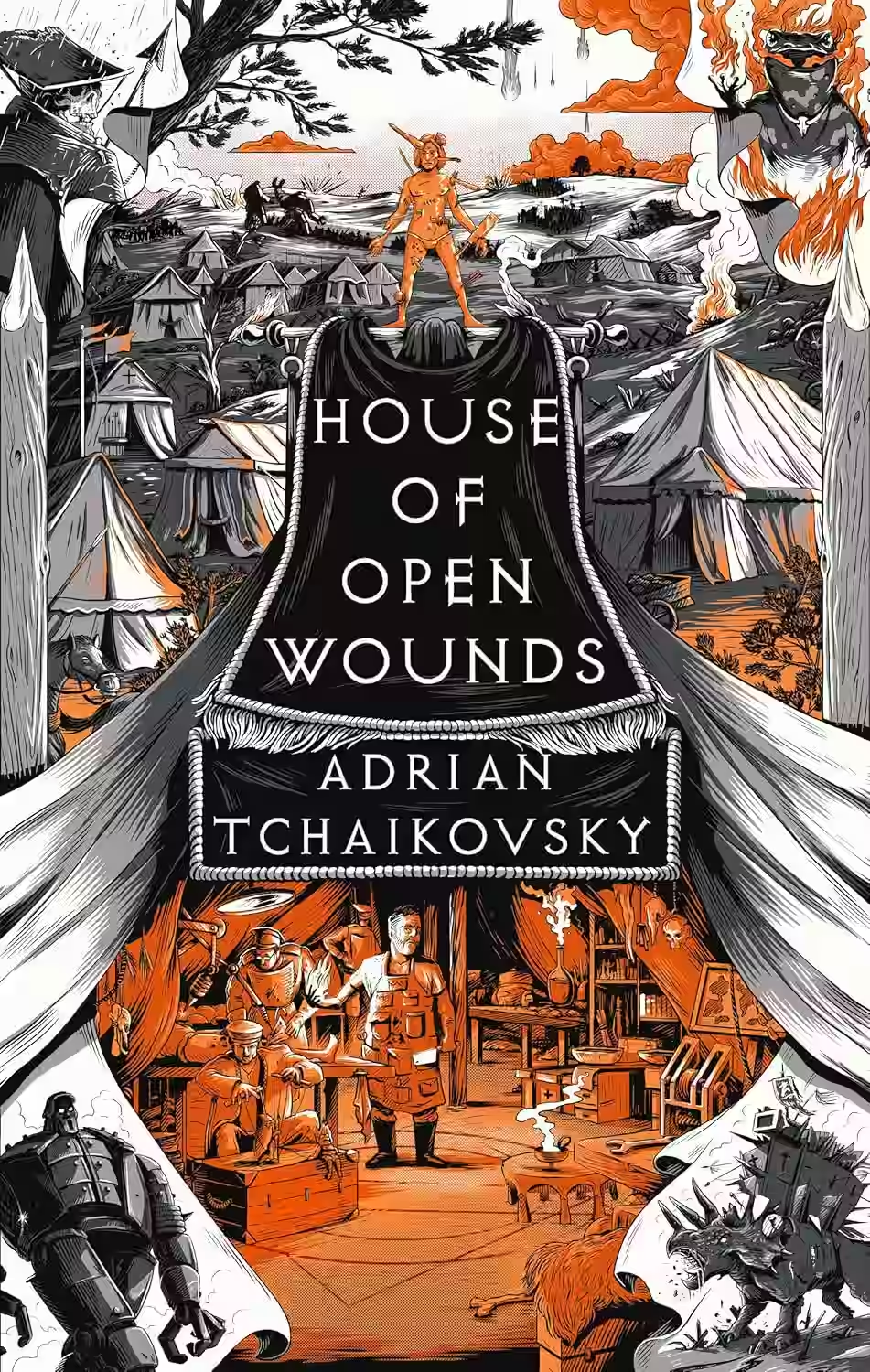
Behind the Palleseen crusade to eradicate magic, a field hospital confronts war's brutal reality. Yasnic, a former priest reprieved from execution, serves in an unorthodox medical unit led by the formidable 'Butcher'. Amidst gore and suffering caused by monsters, magic, and enemy soldiers, this motley crew of conscripts and healers works to save the seemingly unsavable. Their precarious existence is threatened by their illicit practices involving unapproved magic, necromancy, and Yasnic's forbidden Gods, risking disbandment, arrest, or worse at the hands of the zealous Palleseen.
About The Tyrant Philosophers Series
This alternate history/philosophical fantasy trilogy includes The Just City, The Philosopher Kings, and Necessity. Inspired by Plato’s Republic, the series imagines Greek gods creating a city governed by philosophical ideals, staffed by scholars from across history. As the experiment evolves—and unravels—the books explore questions of justice, consent, identity, and divine intervention. Walton blends speculative fiction with intellectual rigor and emotional insight, crafting a unique, thought-provoking exploration of idealism and imperfection in both gods and humans.
About Adrian Tchaikovsky
A British author known for his diverse and imaginative science fiction and fantasy novels, often featuring intricate world-building, unique alien species, and thought-provoking explorations of evolution and consciousness. His Arthur C. Clarke Award-winning novel, Children of Time, is a prime example of his ability to create compelling narratives with truly alien perspectives. Tchaikovsky's prolific and inventive storytelling has made him a significant figure in contemporary speculative fiction.
Other Books by Adrian Tchaikovsky
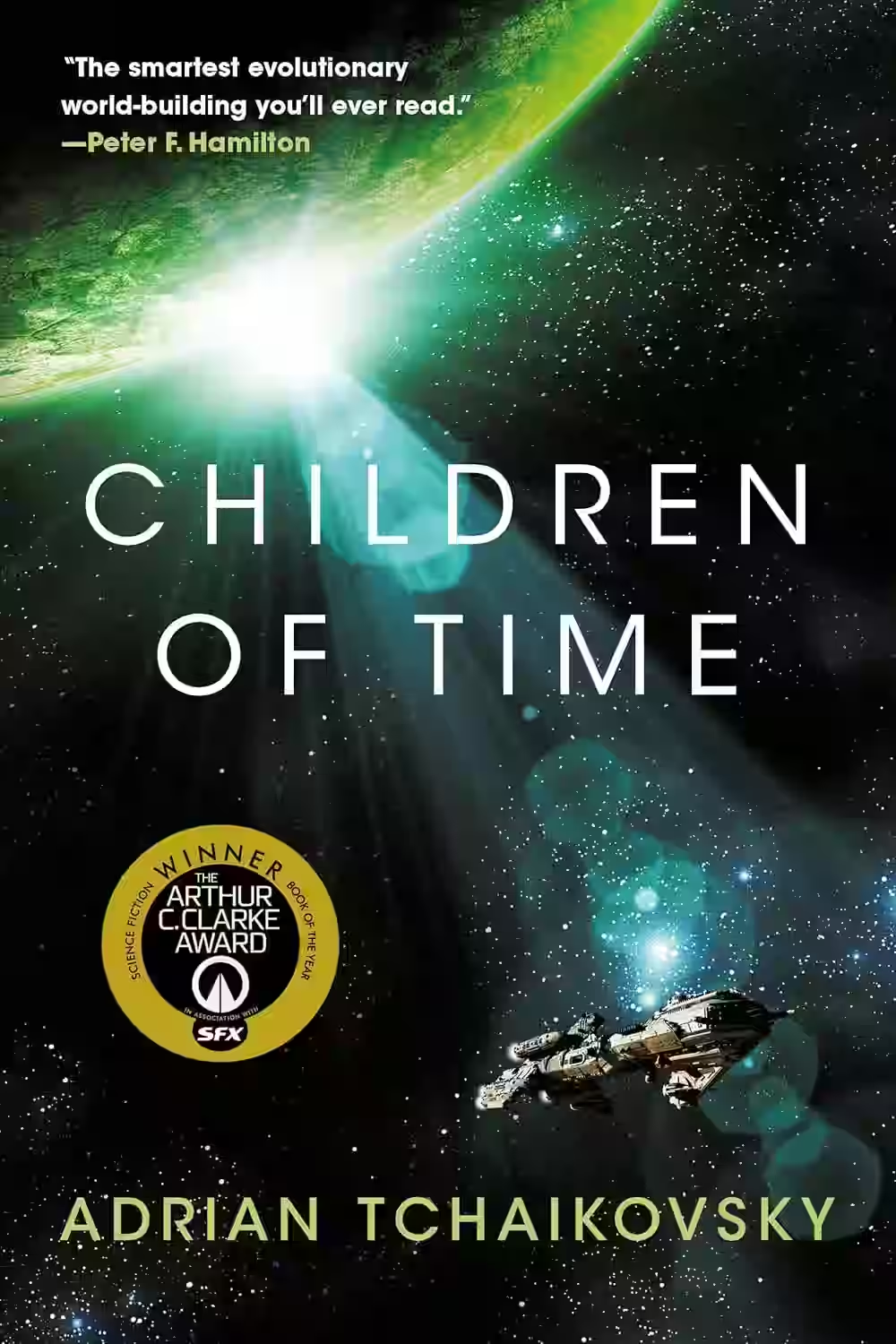
Children of Time
Series: Children of Time (#1)
Adrian Tchaikovsky’s Children of Time is a sweeping sci-fi epic about the rise of a new civilization. As humanity flees a dying Earth, they discover a planet where uplifted spiders—descendants of a failed terraforming experiment—have evolved intelligence and complex societies. The novel alternates between the spiders’ development and a desperate human crew searching for a new home. It explores themes of evolution, empathy, and what it means to be human. With bold ideas and a richly imagined alien perspective, Children of Time is a thought-provoking, genre-bending masterpiece that challenges assumptions about intelligence, progress, and survival.
Similar Books
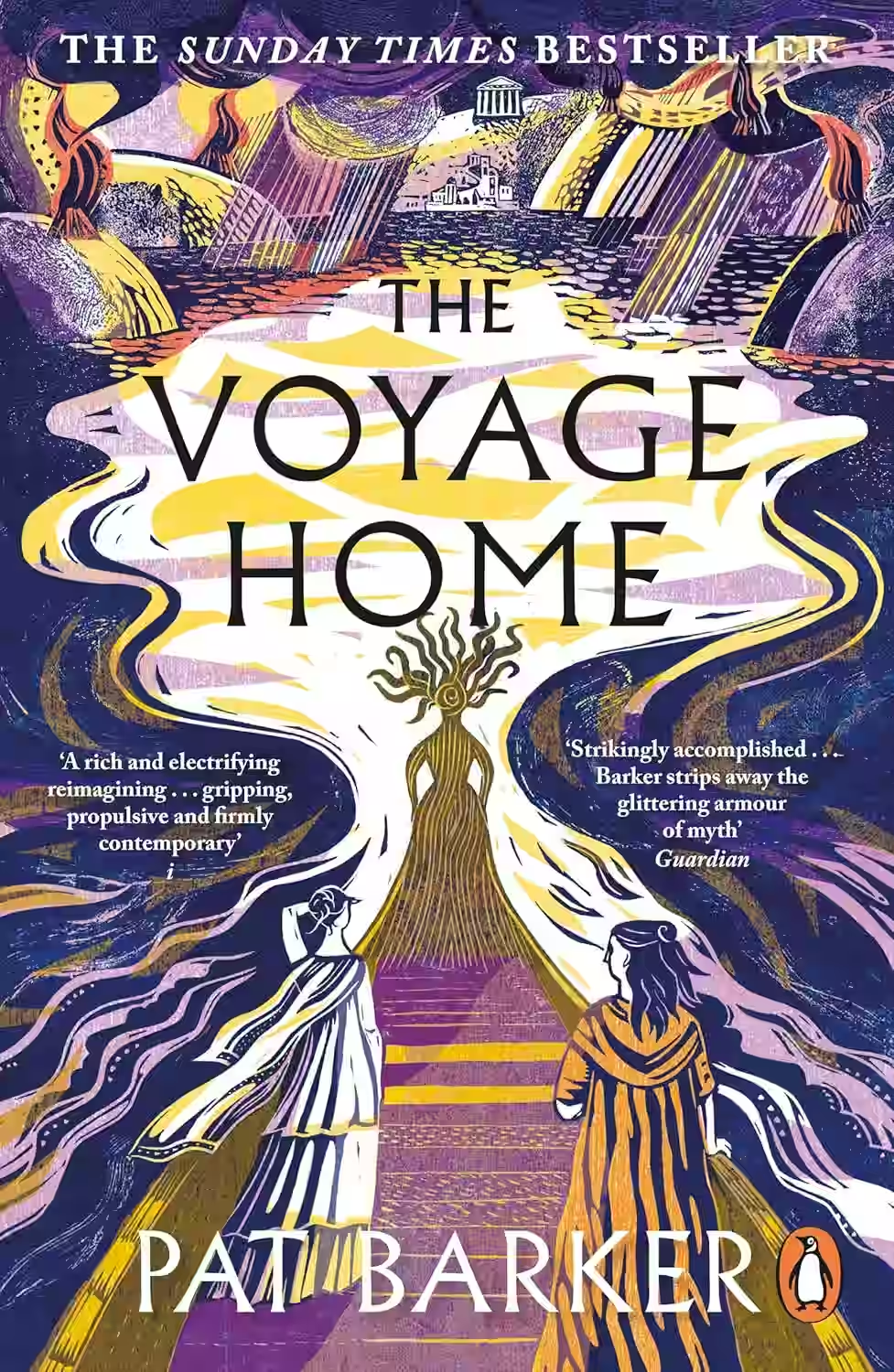
The Voyage Home
by Pat Barker
Series: The Women of Troy (#3)
In 'The Voyage Home', Pat Barker masterfully explores themes of identity, trauma, and the relentless quest for self-discovery in a post-war world. Set against the backdrop of a society trying to piece itself back together, the narrative follows a diverse ensemble of characters grappling with their pasts as they seek a sense of belonging and purpose. Barker's lyrical prose intricately weaves personal stories with broader historical context, creating a vivid tapestry of human resilience and vulnerability. The novel's introspective nature coupled with its emotionally charged journey invites readers to reflect on their own paths and the complex interplay between memory and healing.
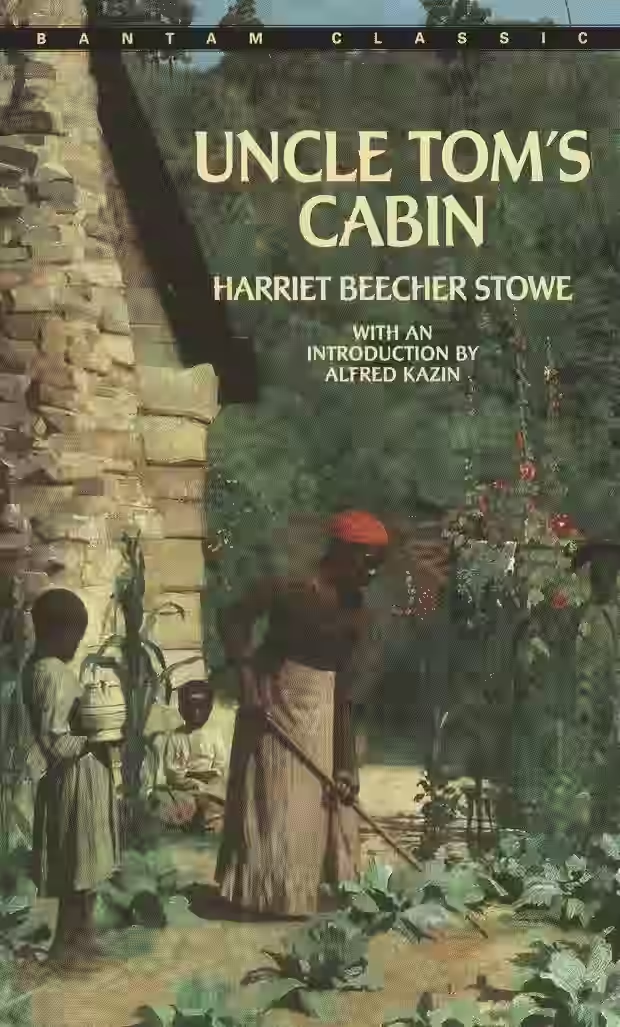
Uncle Tom’s Cabin
A landmark anti-slavery novel, Uncle Tom’s Cabin tells the story of enslaved man Tom and the brutal realities of slavery in 19th-century America. With vivid characters and emotional power, it galvanized abolitionist movements and shaped public opinion like no other book of its time. Though controversial for its portrayals today, it remains a pivotal work in American literature and history, sparking empathy and national debate.
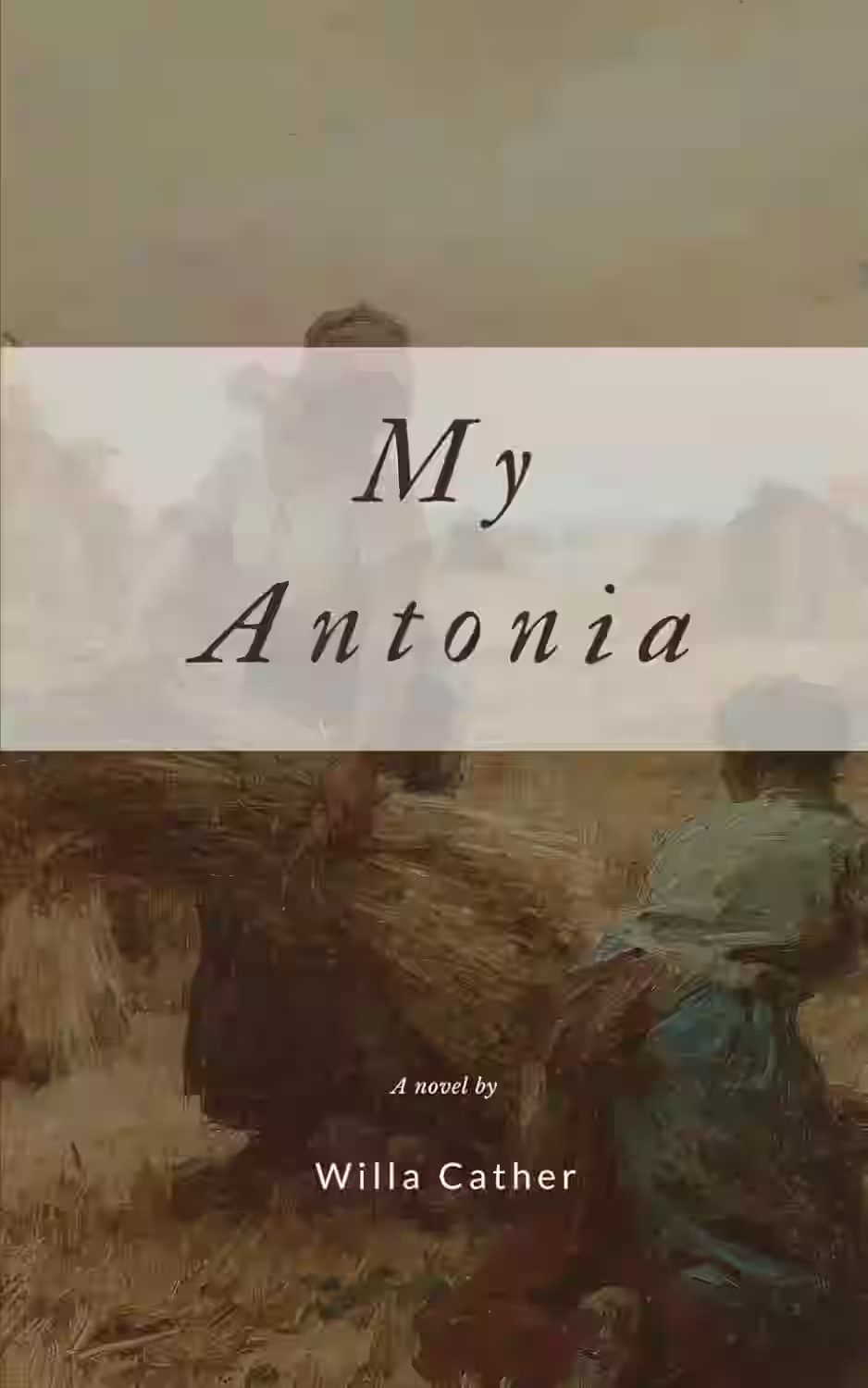
My Antonia
by Willa Cather
Told through the eyes of Jim Burden, My Ántonia recounts the life of Ántonia Shimerda, a spirited immigrant girl on the Nebraska frontier. Through vivid landscapes and deep characterizations, Cather celebrates pioneer life, hard work, and memory. The novel is a nostalgic tribute to the resilience of early settlers and the bond between people and place, filled with poetic prose and quiet power.
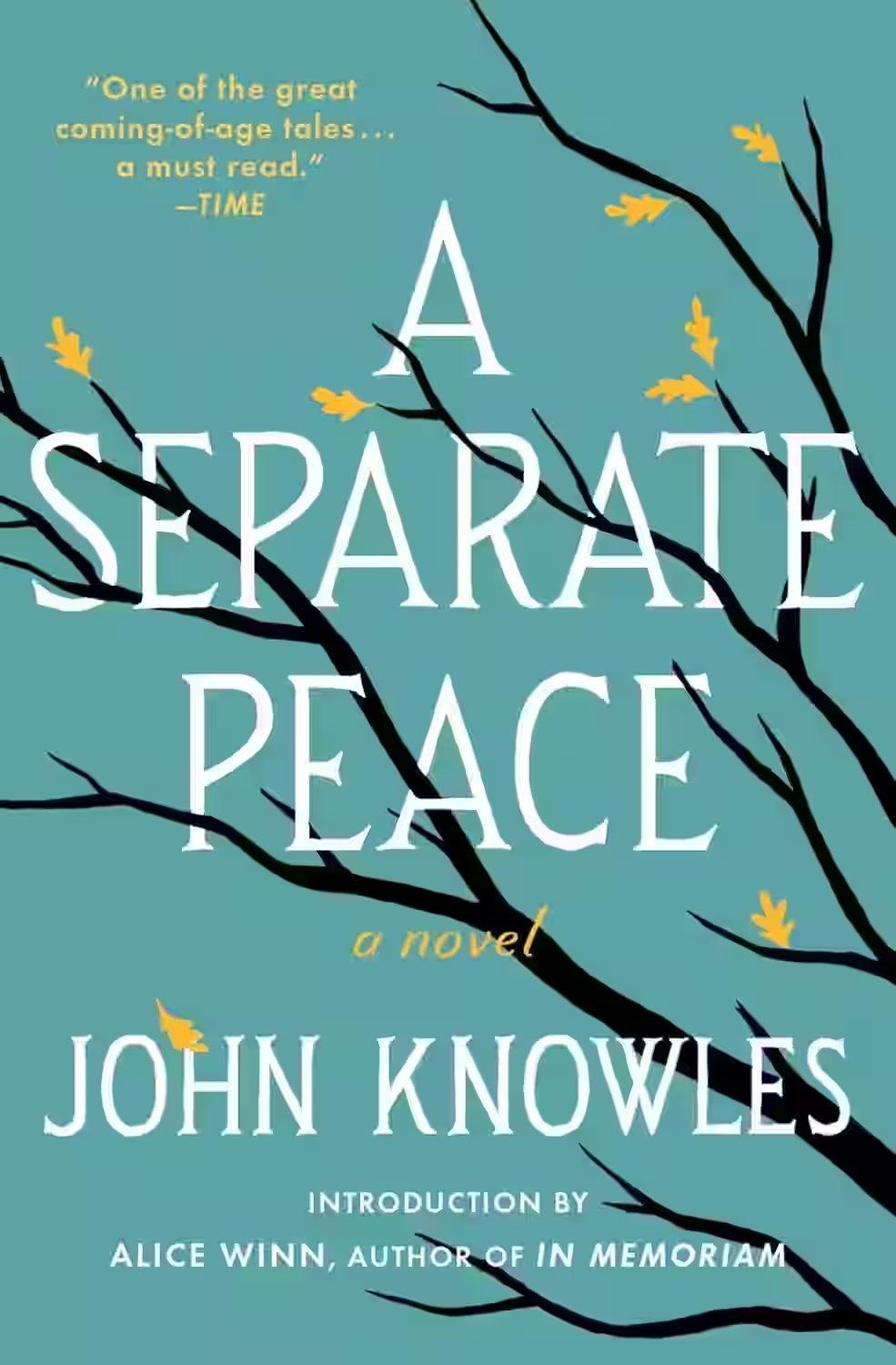
A Separate Peace
by John Knowles
John Knowles' classic novel, "A Separate Peace," delves into the complex themes of friendship, rivalry, and the loss of innocence against the backdrop of a World War II-era boarding school. The story follows Gene Forrester, whose introspective narrative recounts his experiences with his charismatic and athletic best friend, Phineas (Finny). As their relationship teeters between admiration and envy, a tragic accident irrevocably alters their lives. Knowles explores the inner conflicts of adolescence, the harsh realities of coming-of-age, and the impact of war on youth. With vivid settings and psychological depth, the novel resonates with readers, offering a poignant reflection on human nature's duality.